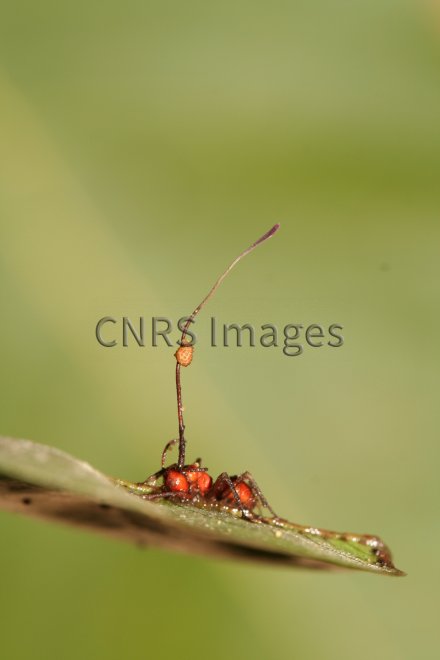Production year
2014

© Rumsaïs BLATRIX/CEFE/CNRS Images
20140001_2363
Fourmi "Camponotus saundersi" parasitée par un champignon "Ophiocordyceps camponoti-saundersi", dans le parc national de Khao Yai, en Thaïlande. Après avoir infecté son hôte, ce parasite spécifique de la fourmi en modifie le comportement. La fourmi quitte alors sa colonie pour s'accrocher sous une feuille à quelques dizaines de centimètres du sol, un environnement particulièrement favorable au développement du champignon. Celui-ci peut alors terminer son développement et pousser hors du corps de l'insecte, ce qui lui permettra de libérer des spores qui infecteront de nouvelles fourmis.
The use of media visible on the CNRS Images Platform can be granted on request. Any reproduction or representation is forbidden without prior authorization from CNRS Images (except for resources under Creative Commons license).
No modification of an image may be made without the prior consent of CNRS Images.
No use of an image for advertising purposes or distribution to a third party may be made without the prior agreement of CNRS Images.
For more information, please consult our general conditions
2014
Our work is guided by the way scientists question the world around them and we translate their research into images to help people to understand the world better and to awaken their curiosity and wonderment.